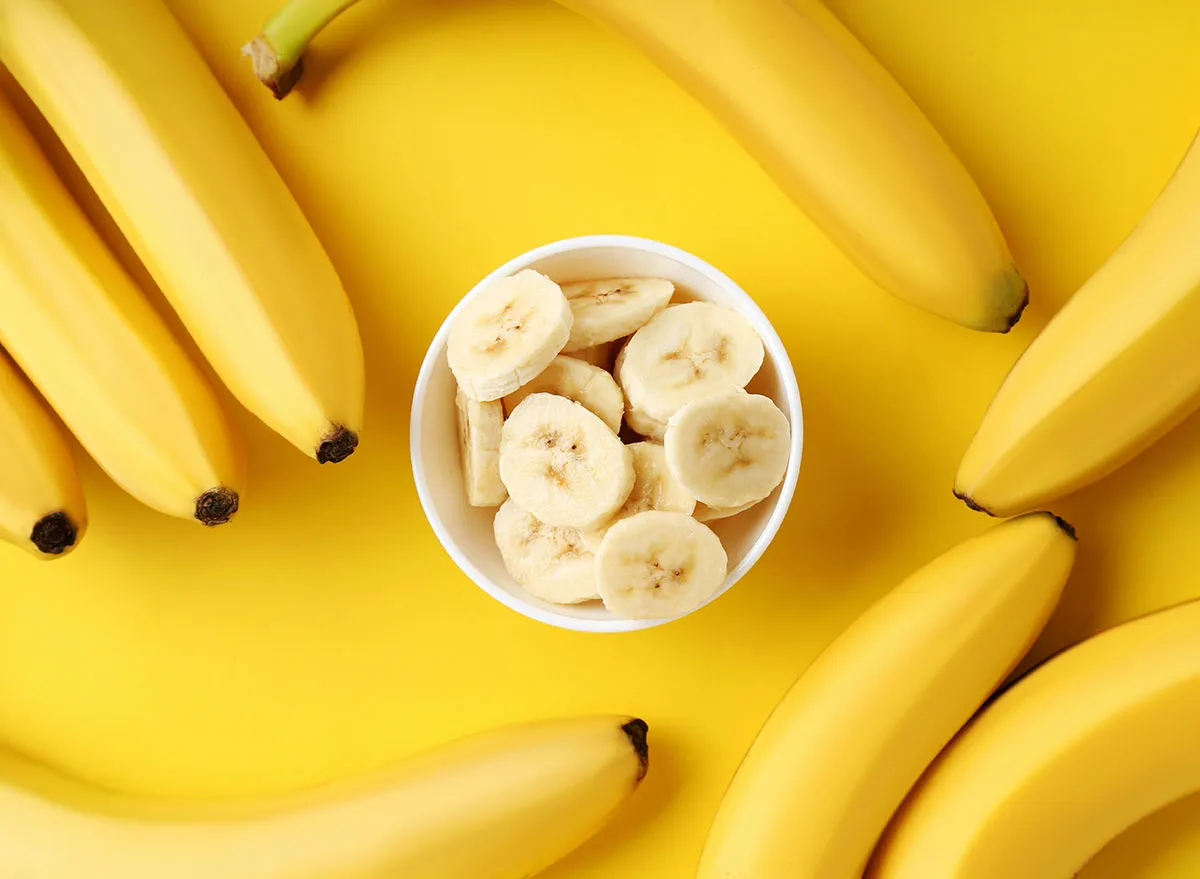Banana; when water is not limiting, growth is determined by temperature. Grown along the wetter, coastal fringe in Australia, the ocean’s warming influence allows bananas to be grown within subtropical climates – 20° to 30° south of the equator – although growth does slow significantly during winter. Bananas, mainly to be a tropical plant although in some micro-climate subtropical climate can be grown in the conditions.
What Is Banana?
Bananas have been called “the world’s most perfect fruit.” They’re high in potassium, low in fat, and a good source of vitamins and fiber. They’re also one of the few fruits available year round.
Today’s sweet yellow banana is a mutant strain of the plantain, a starchy red-green cooking banana that is boiled, fried, or ground for use in staple dishes worldwide. Bananas likely originated in Malaysia, though one of the first mentions dates to 327 B.C.E., when Alexander the Great discovered the fruit during his conquest of India.
A Spanish friar brought the first banana roots to the Western Hemisphere in 1516, and the fruit was officially introduced to the U.S. public at the 1876 Centennial Exhibition in Philadelphia, where each banana was wrapped in foil and sold for 10 cents. By the early twentieth century, bananas had become the most valuable fresh fruit in world trade, a position they held until the 1970s.
Nutritional Value of Banana
Bananas are an excellent source of potassium. Potassium can be found in a variety of fruits, vegetables, and even meats, however, a single banana provides you with 23% of the potassium that you need on a daily basis. Potassium benefits the muscles as it helps maintain their proper working and prevents muscle spasms. In addition, recent studies are showing that potassium can help to decrease blood pressure in individuals who are potassium deficient. Potassium also reduces the risk of stroke. Bananas are also an excellent source of vitamins, including:
Medicinal Properties of Banana
Nutritional Properties of Banana:
For More: 20 Wonderful Health Benefits Of Banana
What Is Banana?
Bananas have been called “the world’s most perfect fruit.” They’re high in potassium, low in fat, and a good source of vitamins and fiber. They’re also one of the few fruits available year round.
Today’s sweet yellow banana is a mutant strain of the plantain, a starchy red-green cooking banana that is boiled, fried, or ground for use in staple dishes worldwide. Bananas likely originated in Malaysia, though one of the first mentions dates to 327 B.C.E., when Alexander the Great discovered the fruit during his conquest of India.
A Spanish friar brought the first banana roots to the Western Hemisphere in 1516, and the fruit was officially introduced to the U.S. public at the 1876 Centennial Exhibition in Philadelphia, where each banana was wrapped in foil and sold for 10 cents. By the early twentieth century, bananas had become the most valuable fresh fruit in world trade, a position they held until the 1970s.
Nutritional Value of Banana
Bananas are an excellent source of potassium. Potassium can be found in a variety of fruits, vegetables, and even meats, however, a single banana provides you with 23% of the potassium that you need on a daily basis. Potassium benefits the muscles as it helps maintain their proper working and prevents muscle spasms. In addition, recent studies are showing that potassium can help to decrease blood pressure in individuals who are potassium deficient. Potassium also reduces the risk of stroke. Bananas are also an excellent source of vitamins, including:
- Aids in healthy teeth, bones, soft tissue, and more.
- Aids the body’s immune system, promotes brain health, heart health, and more.
- Aids in healing, growth of tissue, ligaments, and more.
- Helps the body to absorb calcium.
Medicinal Properties of Banana
- The fruit is used to heal the intestine lesions
- It forms the part of diets of children suffering from malnutrition
- The core of the stem is believed to be useful in stomach upset and diabetes
- The extract of core of the stem is considered to be useful in dissolving the stones in the kidney and urinary bladder and reducing the weight. The inflorescence mixed with coconut oil and spices is used for flushing the urinary blocks.
- The fruit has a mild laxative property
- It is used as a remedy of constipation in children
- It is believed to be helpful in curing diarrhea and dysentery
- The fruit is believed to reduce the worm problems in the kids
Nutritional Properties of Banana:
- Hundred grams of ripe Banana provides approx. 116 KCal energy that makes it a supplementary staple food.
- Banana has relatively less proteins compared to cereals, absence of other protein rich foods in the diet can cause protein deficiency in people depending mostly on Banana as staple food.
- Cooked or ripe Banana are easily digested
- Banana is a fair source of Vitamin B and Calcium
- Banana contains about 20% sugar.
For More: 20 Wonderful Health Benefits Of Banana


